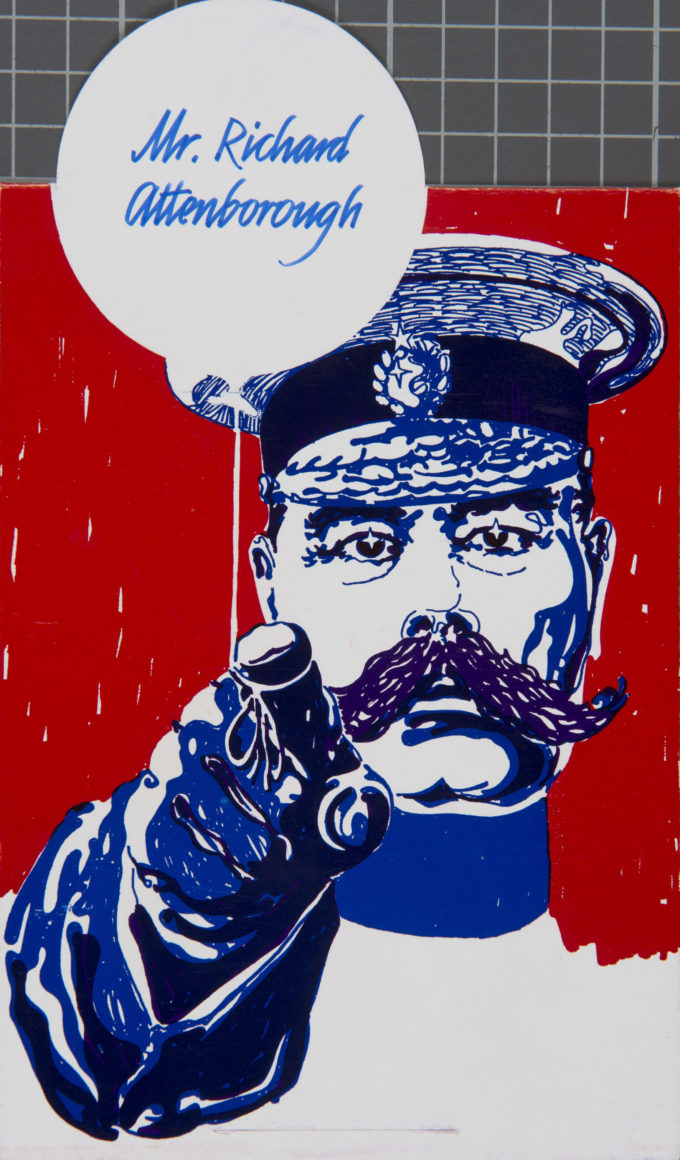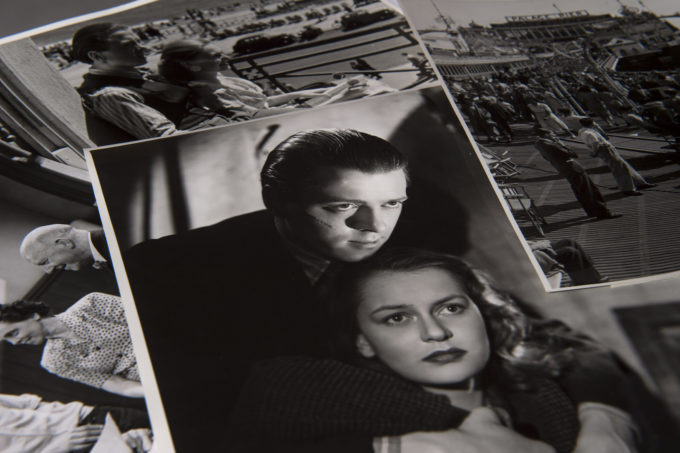

Thousands of never-before-seen photographs, letters, script notes and more spanning Richard Attenborough’s extraordinary life and career are now at the fingertips of students, researchers and the public, thanks to a new archival collection now open.
The Attenborough Archive has been accepted in lieu by HM Government from the Attenborough family and allocated to the University of Sussex, in recognition of Lord Attenborough’s 40-year association with the University, which culminated in 10 years as its Chancellor until 2008.
After 18 months of painstaking cataloguing the collection is now available for the public to explore at The Keep, the purpose-built archive near to the University campus and just along the road from Attenborough Centre for the Creative Arts.
The collection features never-before-seen material covering some of his most famous work; location plans and call sheets for Oh What A Lovely War!, famously filmed in and around Brighton during the 1960s; early sketches for the character of John Hammond who he played in Steven Spielberg’s iconic featureJurassic Park; and Gandhi, the film that scooped 8 Academy Awards®, including Best Director for Attenborough.
The Gandhi material includes annotated scripts and the call-sheet for the film’s historic funeral scene, which, with nearly 350,000 extras listed, is still the most populous scene ever committed to celluloid.
There is also a wealth of more personal material, including family photographs and letters from his brother Sir David Attenborough; general correspondence with everyone from Charlie Chaplin to the Queen; and papers documenting his tireless charity efforts working on behalf of Muscular Dystrophy UK and campaigning for the erection of the statue to Nelson Mandela in Parliament Square.
Richard Attenborough’s son, theatre director Michael Attenborough, ACCA’s patron, said: “This massive archive reflects my father’s breathtakingly active life; not only as a movie actor and director, but also as an indefatigable fighter for human rights and social justice, through the many causes, political and charitable, he believed in so passionately.
“The range of people he knew intimately - from Noel Coward to Nelson Mandela, from Laurence Olivier to Princess Diana - is unprecedented. This archive now offers the world a real insight into this completely unique life.”
For more information and to register as a reader to view material, please click here.